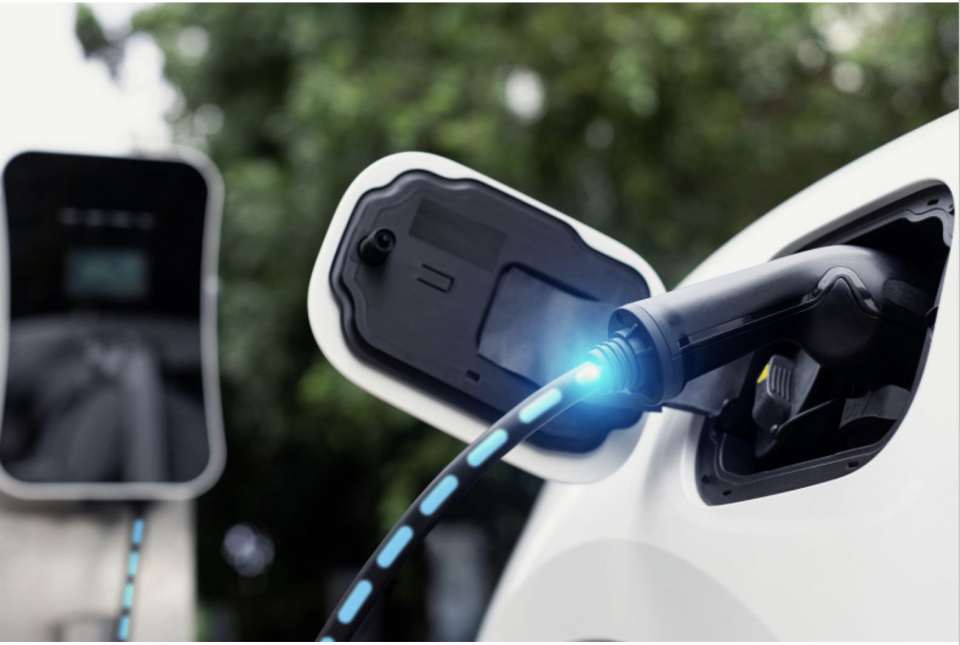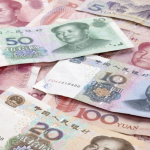An electric vehicle charges at a charging station, while the Thai government has introduced three initiatives to boost the production and adoption of EVs. In 2023, domestic sales of battery electric vehicles (BEVs) in Thailand surged by 603% year-on-year to 73,568 units, with this trend anticipated to continue in 2024, according to the Federation of Thai Industries (FTI).
The growth of BEVs is projected to outpace that of internal combustion engine (ICE) vehicles, which experienced a sales decline of 13.7% year-on-year to 238,570 units last year, holding a 30.7% market share in the passenger car segment. In contrast, BEVs captured a 9.4% market share in the same segment.
The promising trajectory of EV sales has attracted increased investments from automotive and technology developers, despite recent news of Apple Inc halting its efforts to produce EVs after a decade-long endeavor.
The Explainer delves into the factors propelling the expansion of the EV market in Thailand and explores potential production constraints.
Q: What are the driving factors behind the growth in EV sales?
State incentives for EVs play a crucial role in making electric vehicles more accessible, stimulating consumer demand for EVs, as stated by Surapong Paisitpatanapong, the FTI’s vice-chairman and Automotive Industry Club’s spokesperson.
To stimulate the production and consumption of EVs, the government has introduced three packages.
Incentives approved by the National Electric Vehicle Policy Committee last month aim to encourage companies to transition their large truck and bus commercial fleets to BEVs. State incentives include tax deductions for eligible companies until December 31, 2025. The committee has also supported cash grants for EV battery cell manufacturers.
Mr. Surapong highlighted the significance of the EV3.5 and EV3.0 schemes launched by the government in propelling the growth of Thailand’s EV industry. The EV3.5 program, running from 2024 to 2027, provides subsidies ranging from 5,000 to 100,000 baht for imported electric cars and motorcycles. Import duties and excise taxes are also reduced under this scheme. Manufacturers participating in EV3.5 are required to domestically produce EVs starting from 2026.
Under the Prayut Chan-o-cha administration, the EV3.0 program was approved by the committee, incorporating tax incentives and subsidies to promote EV consumption and production from 2022 to 2023. The scheme includes subsidies ranging from 70,000 baht to 150,000 baht based on the vehicle type and model, along with reduced excise taxes and import duties on completely knocked-down and completely built-up units. Participating companies commit to producing EVs in Thailand starting in 2024.
“The combination of incentives and positive economic indicators in Thailand will enhance consumer confidence, encouraging the adoption of EVs,” stated Mr. Surapong.
Mr. Surapong anticipates that if the prices of BEVs, particularly imported models, fall within the range of 600,000 to 1 million baht, more consumers will opt for these vehicles. He further projected that BEV sales may reach 100,000 units this year, potentially even hitting 150,000 units if prices in the city car category drop below 600,000 baht.
Krisda Utamote, president of the Electric Vehicle Association of Thailand (EVAT), attributed the rapid expansion of the EV market to escalating oil prices, technological advancements, and environmental concerns.
Geopolitical tensions driving up oil prices, along with rapid technological progress, have driven consumers to explore alternatives in the automotive sector, noted Mr. Utamote. BEVs hold potential in aiding Thailand’s efforts to reduce carbon dioxide emissions and combat annual challenges related to PM2.5 ultra-fine dust.
Q: Could increased EV production lead to oversupply?
Mr. Surapong expressed confidence that Thailand is unlikely to face an oversupply of EVs that might lead manufacturers to scale back production.
As of January this year, BEV sales in Thailand accounted for 17.8% of total automobile sales, according to the Automotive Industry Club.
Authorities are aiming to boost BEV sales further to counterbalance the rising levels of carbon dioxide emissions from ICE vehicles in the transportation sector.
The government has set a goal for BEVs to constitute 30% of total car production by 2030, with a target of manufacturing 725,000 zero-emission cars, 675,000 electric motorcycles, and 34,000 electric buses and trucks.
Mr. Surapong expressed confidence that the limited number of EV charging stations, particularly in public areas, will not impede EV sales and production. As demand grows for EVs, developers and operators of charging facilities are anticipated to expand these networks, ensuring more accessible charging options.
According to an estimate by EVAT, there were 4,985 EV charging stations nationwide last year. Sharge Management Co, a company specializing in charging infrastructure for battery-powered vehicles, projected that the EV industry would require investments exceeding 2 billion baht for the development of charging facilities between 2023 and 2030. The goal is to increase the number of charging stations to 7,000 to cater to the expanding EV market.
READ MORE STORIES: https://bangkokone.news




